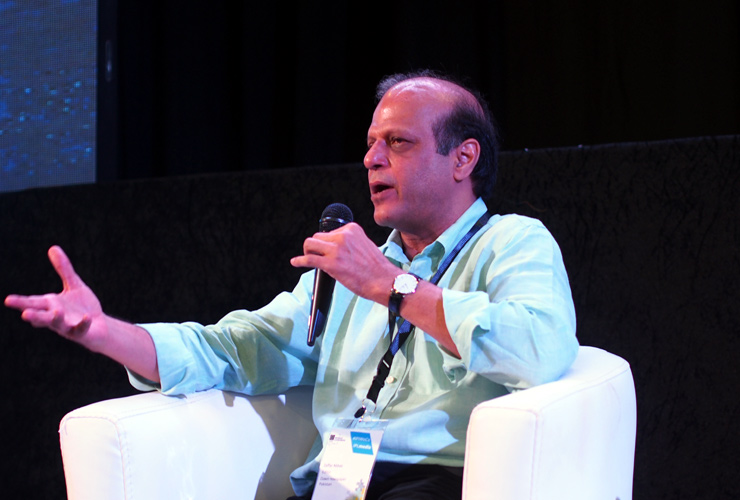As part of our series of interviews with the new members of the International Press Institute (IPI) Executive Board, this week we spoke to Zaffar Abbas. As editor of Dawn, one of Pakistan’s most well-respected newspapers and having worked for the likes of the BBC, Abbas brings a wealth of experience to IPI’s Board.
The influence of organizations like IPI is also huge in cases where journalists are unfairly treated or imprisoned.
Pakistan has a questionable record with regard to press freedom, with journalists facing threats not just from governments, but also from extremist militias and interest groups. In a recent conversation with IPI, Abbas helped shed light on how the situation in Pakistan is developing, especially under the country’s new government, led by former cricket star Imran Khan.
IPI: How do you see the current situation for press freedom in Pakistan?
Zaffar Abbas: The current situation is pretty bad; not because any new laws have been introduced or restrictions announced, but because an atmosphere has been created where media houses are being pressurized by a section of the state to stay away from certain stories.
There’s an atmosphere of intimidation in Pakistan. A lot of journalists have come to social media to speak out that they are forced to work in an atmosphere where self-censorship is the only option. There have even been reports in parts of the country where Dawn’s circulation has been interrupted. It’s a direct message to the newspaper: If you do not fall in line, there will be even more disruptions to your circulation.
IPI: What has been the impact of the recent elections on the media in Pakistan?
Abbas: During the election coverage, there wasn’t actually any real pressure to report or not report certain things.
However, some journalists from other media outlets have turned to social media to put out articles or programmes critical of elements of the election process that were not published. There are also TV presenters who had their programmes diluted to such an extent that coverage of certain issues was totally left out. That said, by and large election coverage was relatively open.
IPI: What do you see as the key challenges for the media in Pakistan, and what will be the impact of the new government under Imran Khan on this?
Abbas: The new government under Imran Khan has challenges, but we are positive. We will be governed by a party that has never governed Pakistan in the past, and they have promised freedom of the press. We hope they will take into account the protests of journalists, publications and unions, and the concerns about intimidation and issues with freedom of Pakistan’s media.
The new government has made certain promises, but at the same time the incoming prime minister has said the media should show some responsibility. We don’t know what they mean by this. What we demand is that journalism should be treated ethically, but journalists should also respect the law. If there is any violation of certain laws, then there is a proper process to chase this up in a court – but not by arbitrary measures against journalists, organizations or publishers. That has to stop.
IPI: What do you view as the main benefits that membership of an organization like IPI brings to yourself and your organization?
Abbas: It is very crucial that organizations like IPI raise issues of press freedom, whether in Pakistan or elsewhere. The message this sends to the people, society and government is that press freedom is a fundamental right – internationally.
The influence of organizations like IPI is also huge in cases where journalists are unfairly treated or imprisoned. Also, electing me to the Executive Board sends a strong message to the government of Pakistan, and can hopefully send a message to other news organizations that certain standards in journalism hand-in-hand aid press freedom.
IPI: What was your motivation to run for the Executive Board at the IPI World Congress in Abuja?
Abbas: I have been following IPI and its role of raising the voice of press freedom and speaking out against censorship and intimidation for a long time. When a colleague of ours pointed out there was an opening, I decided to stand, as press freedom has become a huge problem in my region.
By joining IPI on this level, I hope to learn from IPI members in the rest of the world on how to deal with problems which we all encounter. It is an honour to be on the Executive Board of such a prestigious organization!
